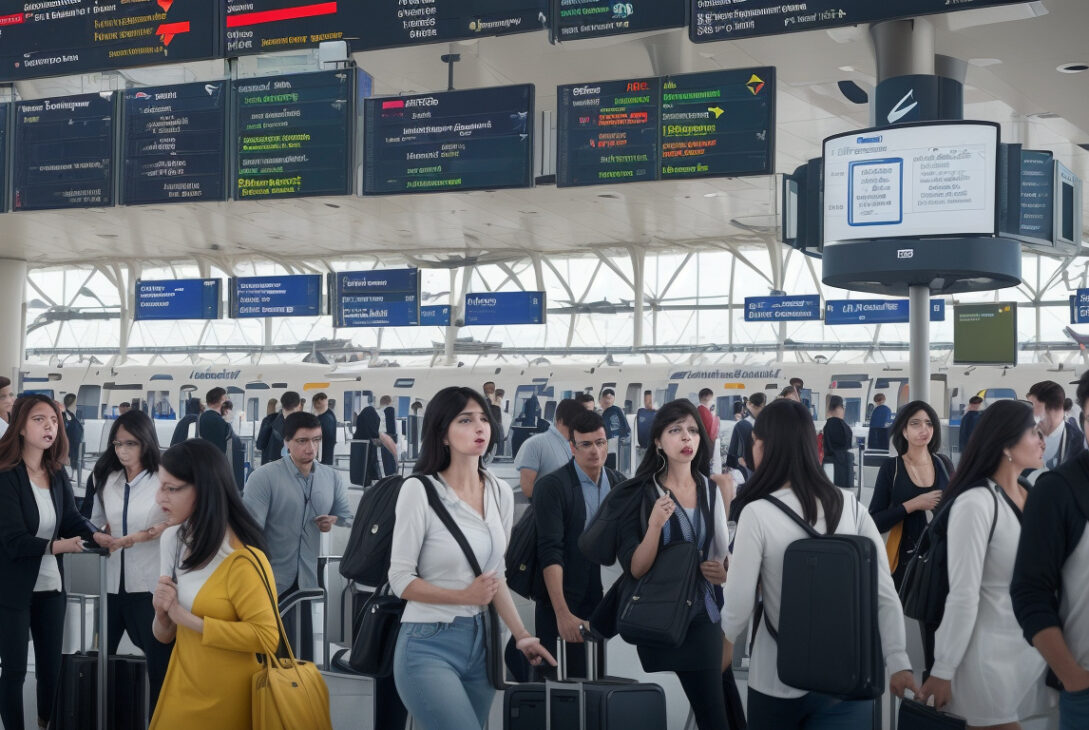FAA Attributes DFW and Love Field Airport Outage to Multiple Technology Failures
Dallas, TX – September 20, 2025 — A significant equipment outage that disrupted operations at Dallas/Fort Worth International Airport (DFW) and Dallas Love Field on Friday evening was caused by "multiple failures" in technology services, the Federal Aviation Administration (FAA) reported Saturday. The outage led to hundreds of flight cancellations and delays before operations returned to normal.
Cause of the Outage
According to the FAA, the disruption stemmed from multiple failures in data telecommunications services provided by Frontier, a Dallas-based internet provider. The outage affected the FAA’s Dallas Terminal Radar Approach Control (TRACON) facility, an air traffic control center responsible for managing aircraft as they approach and depart airports within a 30 to 50 mile radius and up to 10,000 feet in altitude.
The FAA emphasized that the issue also involved aerospace and defense contractor L3Harris, which failed to ensure that system redundancies functioned correctly during the incident. This failure contributed to the widespread impact on air traffic control services in the Dallas area.
Impact on Flights and Airlines
The disruption on Friday prompted a ground stop and caused a ripple effect throughout the evening peak travel window. Southwest Airlines, which operates 18 of Love Field’s 20 gates, and Fort Worth-based American Airlines, which uses DFW as its central hub, were both affected.
David Seymour, Chief Operating Officer at American Airlines, disclosed in a letter to staff that between 3 p.m. and 6 p.m. on Friday, only nine American flights departed from DFW, compared to their usual rate of roughly 100 departures per hour.
More than 530 American flights were canceled on Friday and another 160 on Saturday as the airline worked to recover from the disruption. Seymour assured that safety was never compromised and praised the FAA’s swift response in maintaining operational control throughout the outage.
Flight tracking data further highlighted the scope of delays and cancellations: on Friday, DFW experienced 607 delays and 510 cancellations, while Love Field experienced 224 delays and one cancellation. By Saturday afternoon, operations showed improvement, with DFW reporting 251 delays and 155 cancellations, and Love Field seeing 46 delays and no cancellations.
Calls for Modernization
The FAA issued a statement underscoring that this event reflects the agency’s aging infrastructure and the pressing need to modernize air traffic control systems. “Moving from aging, analog systems to more resilient, digital technology is critical to maintaining the reliability and resiliency of the national airspace system,” the FAA said.
They also noted that the process is hindered by thousands of outstanding state and local permitting challenges, which risk delaying modernization projects by years.
This recent Dallas outage echoes a pattern of similar disruptions this year, including a technology failure in May at Philadelphia’s air traffic control facility and an incident in April at Newark Liberty International Airport, revealing systemic vulnerabilities in the current infrastructure.
Efforts Underway
In response to these ongoing issues, U.S. Transportation Secretary Sean Duffy has emphasized a comprehensive plan to overhaul the nation’s air traffic control system. The plan includes replacing outdated radar, software, hardware, and telecommunications networks to better serve modern air travel needs.
Reflecting on the Dallas outage, Duffy posted on social media, “This is EXACTLY why @POTUS and I are hard at work to build a brand new air traffic control system. We will make disruptions like these a thing of the past.”
Recovery and Outlook
As of Saturday afternoon, both DFW and Love Field airports have returned to normal operational levels. The FAA is actively coordinating with airlines to address the backlog and recover impacted flights.
Passengers affected by the outage are encouraged to check with their airlines for updated flight information. The incident serves as a stark reminder of the critical need to invest in infrastructure upgrades to ensure the continued safety and efficiency of air travel nationwide.
Jordan Parker covers aviation for The Dallas Morning News. He joined the newsroom in August 2025, bringing experience in breaking news and disaster reporting.










